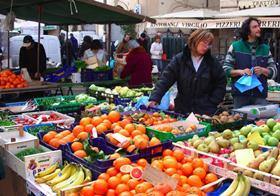
The Mediterranean diet, traditionally high in fruit and vegetable consumption, has this week received official recognition of its cultural importance by the United Nations Educational, Scientific and Cultural Organisation (UNESCO).
Recognising a nutritional model that has as one of its key elements the consumption of fresh fruit and vegetables, the Intergovernmental Committee of UNESCO for the Safeguarding of the Intangible Cultural Heritage voted to add the diet to its list.
The decision marks the culmination of several years work by the Barcelona-based Foundation for the Mediterranean Diet, which coordinated a joint submission backed by Spain, Greece, Italy and Morocco.
Announcing its decision, UNESCO said in a statement that the Mediterranean diet constituted “a set of skills, knowledge, practices and traditions ranging from the landscape to the table, including the crops, harvesting, fishing, conservation, processing, preparation and, particularly, consumption of food”.
“The Mediterranean diet is characterised by a nutritional model that has remained constant over time, consisting mainly of olive oil, cereals, fresh or dried fruit and vegetables, a moderate amount of fish, dairy and meat, and many condiments and spices, all accompanied by wine or infusions, always respecting beliefs of each community,” it said.



